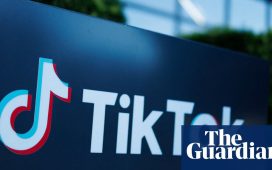Fake news and false market rumours spread by social media are becoming an increasing headache for companies around the world, fresh data reveal.
The latest annual fraud and risk survey published by Kroll, the business intelligence and investigations firm, found that 84 per cent of companies feel threatened by the risk of false rumours being fuelled by social media while “adversarial” social media featured in 27 per cent of corporate incidents in the past year.
It is the first time the global survey has polled companies specifically about the threat from social media.
The data, gleaned from a survey of 588 large companies across 13 countries, comes after several corporates suffered at the hands of rumours and fake news on the web.
Metro Bank in the UK was forced to take to Twitter in May to reassure customers of its financial health after its share price dropped 11 per cent due to false rumours circulating on WhatsApp and Twitter, warning that the bank was close to collapse and encouraging customers to empty their accounts.
In the US, BlackRock was targeted earlier this year by a hoax involving a spoof letter purporting to be written by the fund group’s chief executive, Larry Fink, that was sent to media outlets. It contained a warning that companies must take decisive action on tackling climate change or be dumped by the world’s largest investor.
In a separate incident, India’s Infibeam Avenues, an ecommerce firm, lost 71 per cent of its market value in a day in 2018 after spurious reports about the company’s accounts circulated on traders’ WhatsApp messages. The company reported the incident to India’s securities regulator.
Markets regulators are aware of the phenomenon — the US Securities and Exchange Commission even warned would-be investors back in 2015 of the perils of false rumours spreading on social media, and has said it will step up its monitoring of sites.
The risk landscape is further complicated by the fact that the survey revealed that 78 per cent of companies questioned used “influencers” and brand ambassadors. This means that they have to vet both influencers and their wider digital networks.
Tom Everett-Heath, Kroll’s global head of business intelligence and investigations, said companies were facing evolving threats.
“Businesses are now operating in more complex and volatile markets than ever, relying on a broader network of third parties and becoming increasingly digitised. In many cases, they’re also putting their reputations in the hands of social media influencers,” he said.
“It comes as no surprise that businesses are looking for better, more efficient ways to prevent and detect these increasingly varied threats, before they escalate into significant issues.”








